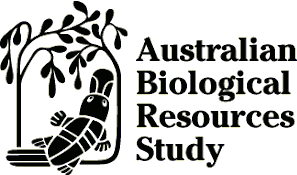Australian Tropical Rainforest Plants - Online edition
Blepharocarya involucrigera F.Muell.
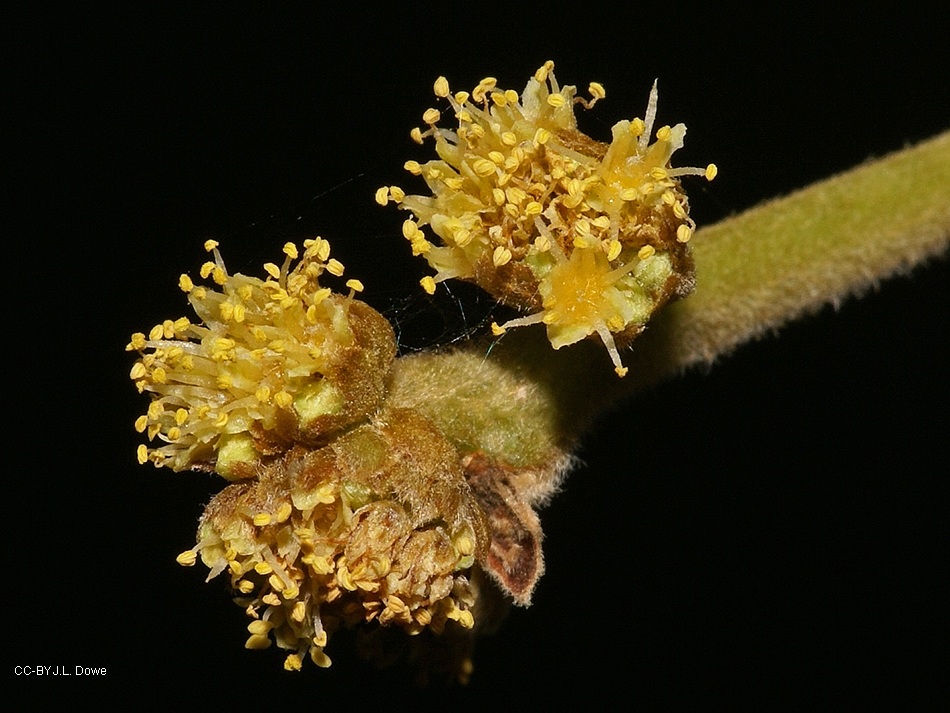
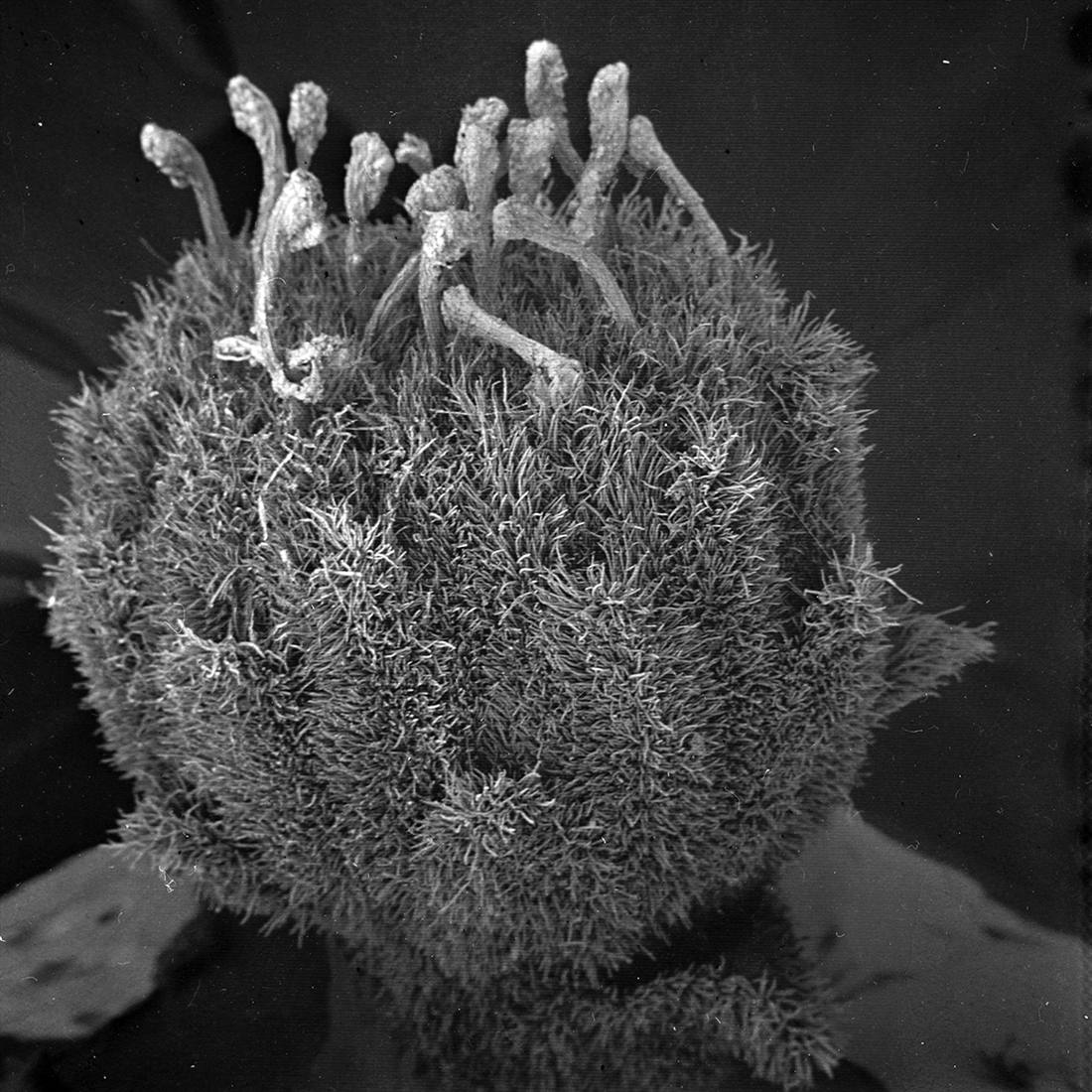
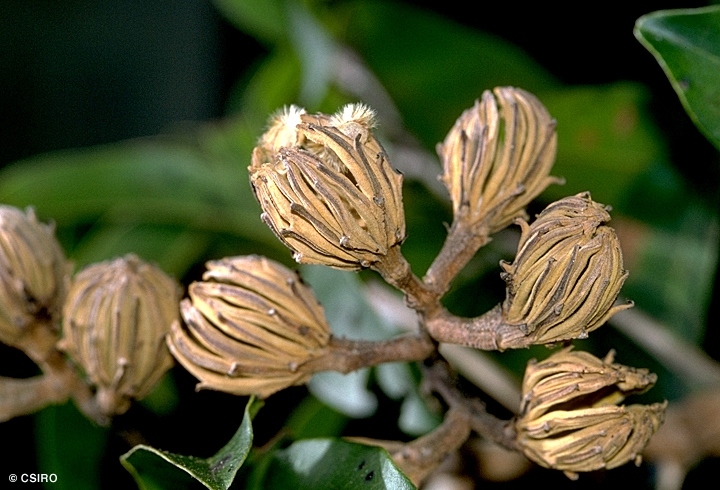
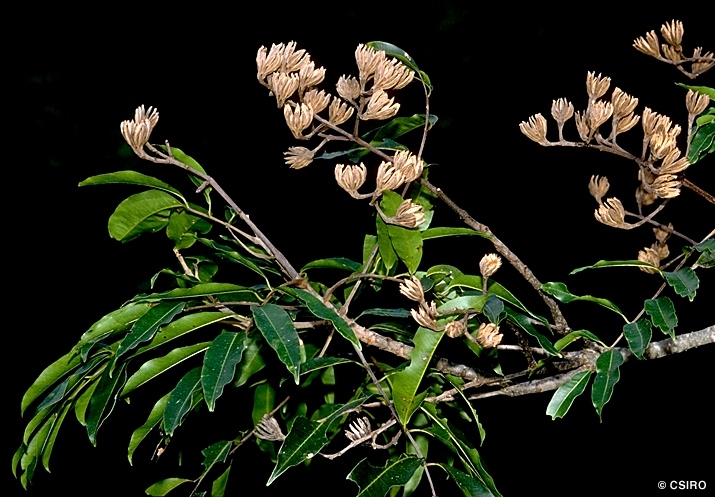
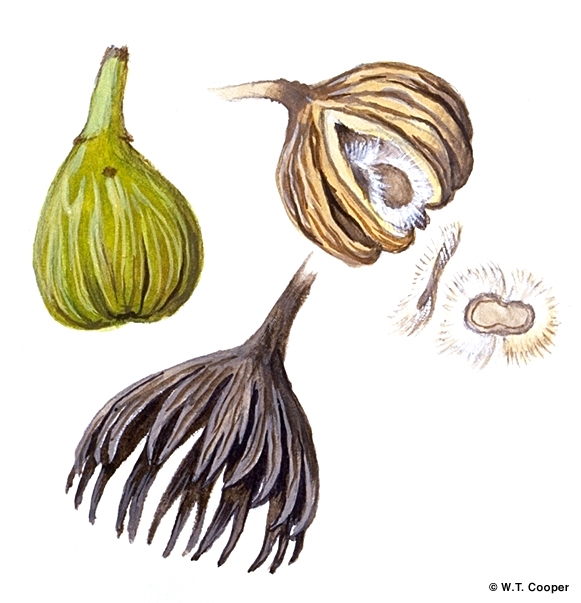
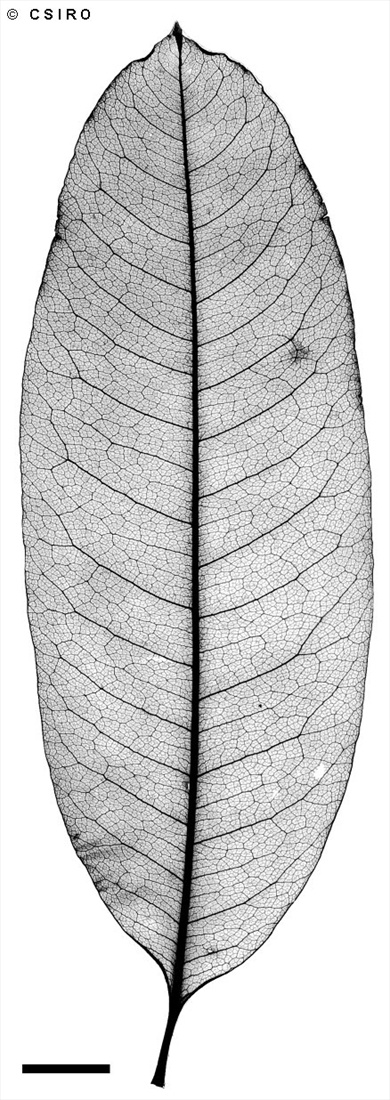
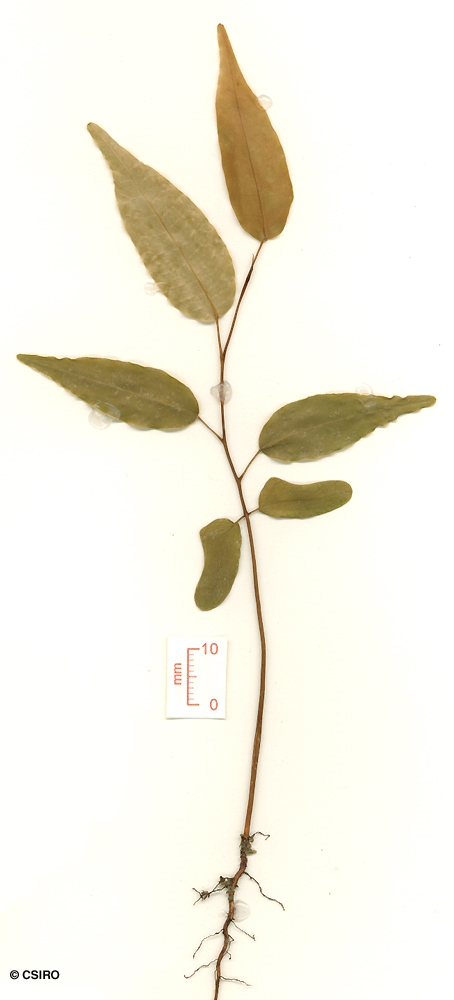
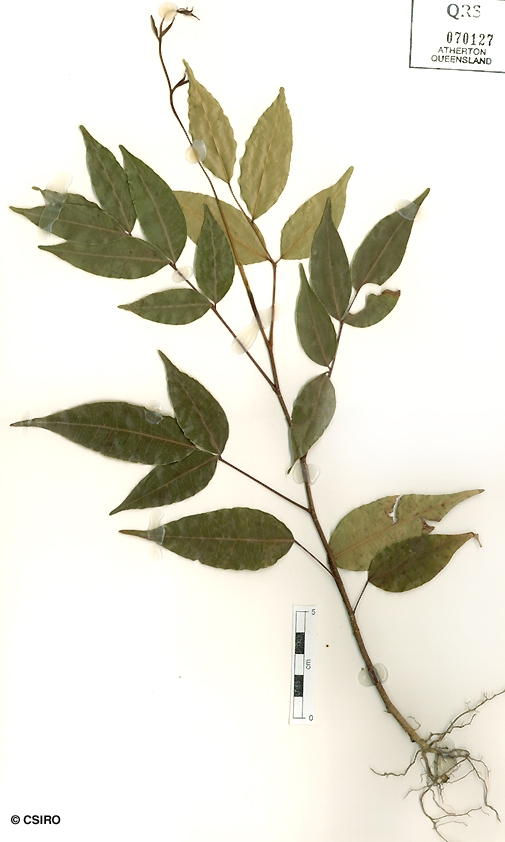
Mueller, F.J.H. von (1879) Fragmenta Phytographiae Australiae 11: 16. Type: In montibus rupestribus ad ostium fluminis Endeavour River; Persietz. syn: MEL; iso: BRI.
Bollygum; Bollygum, North Queensland; Bollygum, Northern; North Queensland Bollygum; Northern Bollygum; Rose Butternut
Normally a well formed tree usually producing a clear resin which can cause allergic reactions.
Twigs exuding a small quantity of clear resin. Numerous pale brown lenticels on the twigs. Upper surface of the compound leaf rhachis +/- flat and the margins angular or slightly winged, particularly below the basal pair of leaflets. A rib usually visible on the underside of the basal part of the compound leaf rhachis and then running down the twig to the next pair of leaves. Leaflet blades about 5-15 x 1.5-4.5 cm.
Flowers crowded, more or less in dense heads surrounded by a number of bracts. Male flowers: Flowers about 2-2.5 mm diam., sepals about 1 x 1 mm, petals about 1.5 x 1 mm. Anthers about 0.5 mm long, filaments about 1.5-2 mm long. Female flowers: Flowers about 1.5 mm diam., tepals about 1.5 mm long. Style and stigma about 1.5 mm long.
Individual fruits about 7-10 x 4-5 mm, green, ripening brown, margins fimbriate with pale hairs. Fruits borne in a capsule-like involucre of long linear bracts. 'Capsules' about 20-30 x 15-20 mm. Inverted umbrella-shaped clusters of bracts, about 2-3 cm diameter, normally present beneath mature trees.
Cotyledons about 16-18 x 6-7 mm, asymmetrical at the base. First pair of leaves lanceolate, about 30-37 x 10-13 mm. At the tenth leaf stage: leaves simple, lanceolate, apex long acuminate, petiole long and slender. Seed germination time 6 to 12 days.
Endemic to Queensland, occurring as a widespread species in both CYP and NEQ. Altitudinal range from near sea level to 800 m. Growing to a large tree in well developed rain forest but often occurring as a small tree in marginal situations particularly in the northern part of its range. Often found in what appear to be even-aged stands.
This species produces a quite decorative timber resembling that of Flindersia brayleyana. The finished polished timber can look quite similar to that of Flindersia brayleyana and there is some evidence that timber of Blepharocarya involucrigera was sold by enterprising sawmillers as Flindersia brayleyana. Sawmill workers and other people can be severely affected by dermatitis and other allergic reactions after coming in contact with this species. Any part of this species can cause a reaction in sensitised individuals.
Formerly used in the manufacture of barrels (cooperage). Swain (1928).
Wood specific gravity 0.56. Cause et al. (1989).




